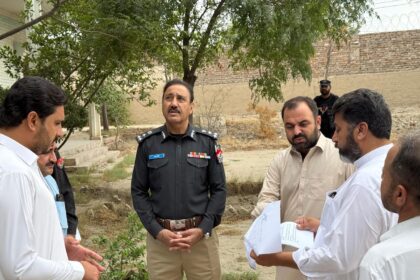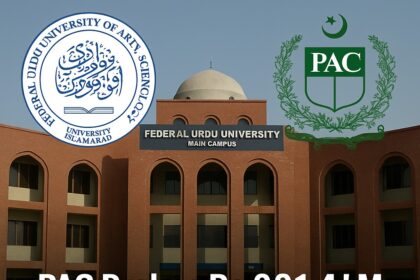The Institute of Strategic Studies Islamabad’s India Study Centre hosted the launch of Ambassador Aizaz Ahmad Chaudhry’s book Pakistan-India Relations: Fractured Past, Uncertain Future, with Ambassador Jalil Abbas Jilani as chief guest and contributions from Ambassador Vice Admiral Khan Hasham bin Siddique and Raja Amer Iqbal.
Director General ISSI Ambassador Sohail Mahmood said the book blends the realism of a career diplomat with the passion of a peace activist and identified five central challenges facing Pakistan India relations, including the intractable Jammu and Kashmir dispute, irreconcilable positions on terrorism, volatile domestic politics, India’s pursuit of regional domination and the complexities of global geopolitics.
Ambassador Sohail drew attention to developments over the past 11 years that have strained ties, citing the halt to structured dialogue, hardening stances on Kashmir, increased kinetic responses, the use of proxies and the weaponisation of trade, sports and water relations, including pressures on the Indus Waters Treaty and stagnation of the SAARC process. He warned that structural constraints such as Hindutva-inspired policies, the BJP’s domestic use of a Pakistan bogey, India’s perceived economic advantage and its major-power ambitions now impede progress. Pakistan, he argued, should seek a peaceful, good-neighbourly relationship founded on mutual respect, sovereign equality and mutual benefit while preserving dignity, avoiding hasty unilateral concessions and maintaining a principled position on Kashmir. He urged use of diplomatic, political and legal measures to protect rights under the Indus Waters Treaty and called for internal consolidation, strategic clarity and patience, stressing that ‘we should neither lower our ambition for peace, nor lose our faith in diplomacy.’
Ambassador Jalil Abbas Jilani described the book as both interesting and educative, noting that it invites reflection on a fractured past shaped by history, culture, contesting ideologies and the human suffering of partition. He said the work deserved wider dissemination in Pakistan, India and beyond and lamented that the list of bilateral contentious issues had grown rather than shrunk. He criticised what he called a revisionist approach by current Indian leadership and accused India of using the rhetoric of cross-border terrorism to malign Pakistan, even as he expressed hope that a future Indian leadership with greater appetite for peace could emerge with support from media, civil society and academia.
Director of the India Study Centre Dr Khurram Abbas said the book combines scholarly rigour with insider diplomatic insight and praised the author for a balanced narrative that avoids bias. Ambassador Aizaz Ahmad Chaudhry himself highlighted four cumulative factors that have driven a deep disconnect between the two states: enduring mistrust from pre- and post-independence events, a historical nexus with the British Raj over Muslim-majority Jammu and Kashmir, the weaponisation of a cross-border terrorism narrative to discredit Pakistan and the legitimate Kashmiri struggle, and India’s hegemonic posture in the region. He reiterated that the road to peace may be bumpy yet is not closed and noted the scarcity of credible works amplifying the Pakistani perspective as a motivation for his book.
Ambassador Vice Admiral Khan Hasham bin Siddique commended the book for its accessible language, coherent flow and evidence-based analysis, saying it addresses a need to clarify the genesis of Pakistan and its longstanding aim for equal-footed good-neighbourly relations with India. He regretted a lack of engagement from Indian academics and former diplomats on the perspectives presented.
Raja Amer Iqbal praised the book as one of the most notable contributions on Pakistan India relations in recent times, arguing that India’s military, economic and political pressures have fuelled mistrust while Pakistan repeatedly offered conciliatory gestures. He added that bilateral trade and economic links, vital for people-to-people contact, have been held hostage by hostile posturing and missed opportunities on the Indian side.
Chairman BoG ISSI Ambassador Khalid Mahmood offered the vote of thanks and characterised the narrative as a sorry tale of compulsive hostility that will persist so long as the current Indian leadership remains unchanged. The event was attended by senior diplomats, practitioners, academics, think-tank experts, students and representatives of civil society and the media, underlining the book’s relevance to policy debates on Pakistan India relations and the wider regional future.











